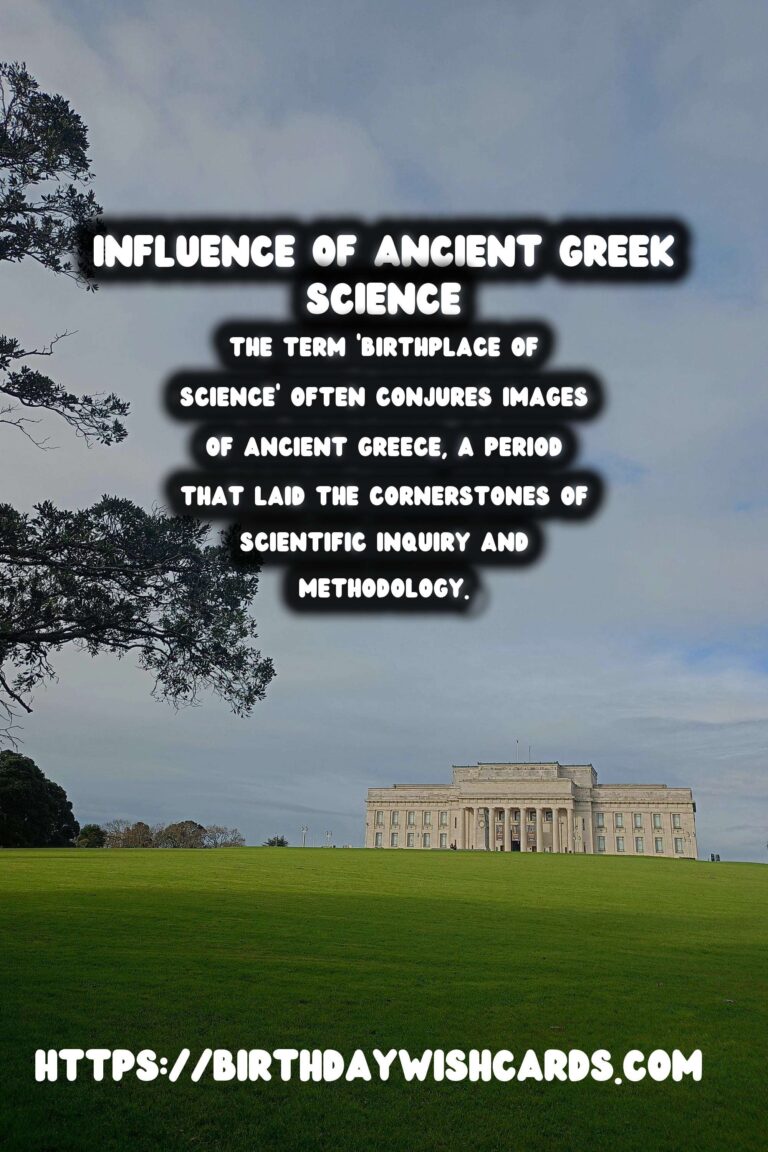
The term ‘birthplace of science’ often conjures images of ancient Greece, a period that laid the cornerstones of scientific inquiry and methodology. Historically, nations and cultures across the world have made their mark on the evolution of science. However, the contributions of Greek philosophers and mathematicians stand out as the most influential. The roots established in this ancient civilization continue to shape modern scientific research in profound ways.
Ancient Greek science was not an isolated endeavor but a synthesis of knowledge from earlier civilizations, including those of Egypt and Mesopotamia. Through trade and conquest, Greek thinkers borrowed concepts and methodologies, refining them into a coherent body of work that formed the foundation of Western science.
The Philosophical Underpinnings
The ancient Greeks approached scientific inquiry through the lens of philosophy. They sought not just to observe and record natural phenomena, but to understand the underlying principles governing them. This quest for knowledge was driven by curiosity about the natural world and the universe.
Philosophers like Socrates, Plato, and Aristotle played pivotal roles. Plato’s theories on forms laid a metaphysical foundation, while Aristotle’s empirical approach advocated for observation and classification. Their work set the stage for the scientific method, emphasizing hypothesis and experimentation, principles that are still integral to research today.
Mathematics: The Universal Language
Another critical aspect of Greek science was mathematics. Figures such as Euclid, Pythagoras, and Archimedes made significant advancements that have endured. Euclid’s ‘Elements’ became one of the most influential works in mathematics, a textbook for centuries. Pythagoras’ theorem continues to be a fundamental principle in geometry, and Archimedes’ work in physics and engineering laid the groundwork for later innovations.
The ancient Greeks perceived mathematics as the language of the universe, a concept that resonates with modern scientists who rely on mathematical models to explain everything from subatomic particles to cosmic phenomena.
Astronomy: Mapping the Stars
Greek contributions to astronomy were equally monumental. The Greeks were among the first to suggest a heliocentric model of the solar system, famously proposed by Aristarchus. Though this idea did not gain immediate acceptance, it lay the groundwork for later astronomers such as Copernicus and Galileo.
The accurate measurement of the Earth’s circumference by Eratosthenes and the cataloging of stars by Hipparchus reflect their advanced understanding of the cosmos. Today, these foundations help astronomers explore the universe and interpret data from modern telescopes and space missions.
The Ethical Dimensions of Science
Beyond discoveries and theories, Greek science introduced ethical considerations that remain crucial in contemporary research. Hippocrates, often referred to as the ‘father of medicine,’ emphasized ethics in medical practice, a testament to the enduring Hippocratic Oath.
In modern research, ethical guidelines help ensure that scientific endeavors are conducted with integrity and respect for participants and the environment. These principles, rooted in Greek thought, are more relevant than ever as we navigate complex issues such as genetic engineering and artificial intelligence.
The Legacy in Modern Research
The legacy of ancient Greek science persists in the laboratories and universities of today. The methodical and philosophical approach to understanding the world set by Greek thinkers has evolved, but it continues to underpin scientific inquiry across disciplines.
From the foundational philosophies that drive research methodologies to the practical applications of mathematical theories, the influence of the birthplace of science is palpable. Modern researchers build upon this legacy as they advance our understanding of the natural world.
In sum, while numerous cultures have contributed to the tapestry of scientific knowledge, the imprint of ancient Greek science is unmistakable. Its foundational theories and principles continue to inspire and guide contemporary research, underscoring the timeless relevance of this cradle of scientific thought.
The term ‘birthplace of science’ often conjures images of ancient Greece, a period that laid the cornerstones of scientific inquiry and methodology. Beyond discoveries and theories, Greek science introduced ethical considerations that remain crucial in contemporary research. 
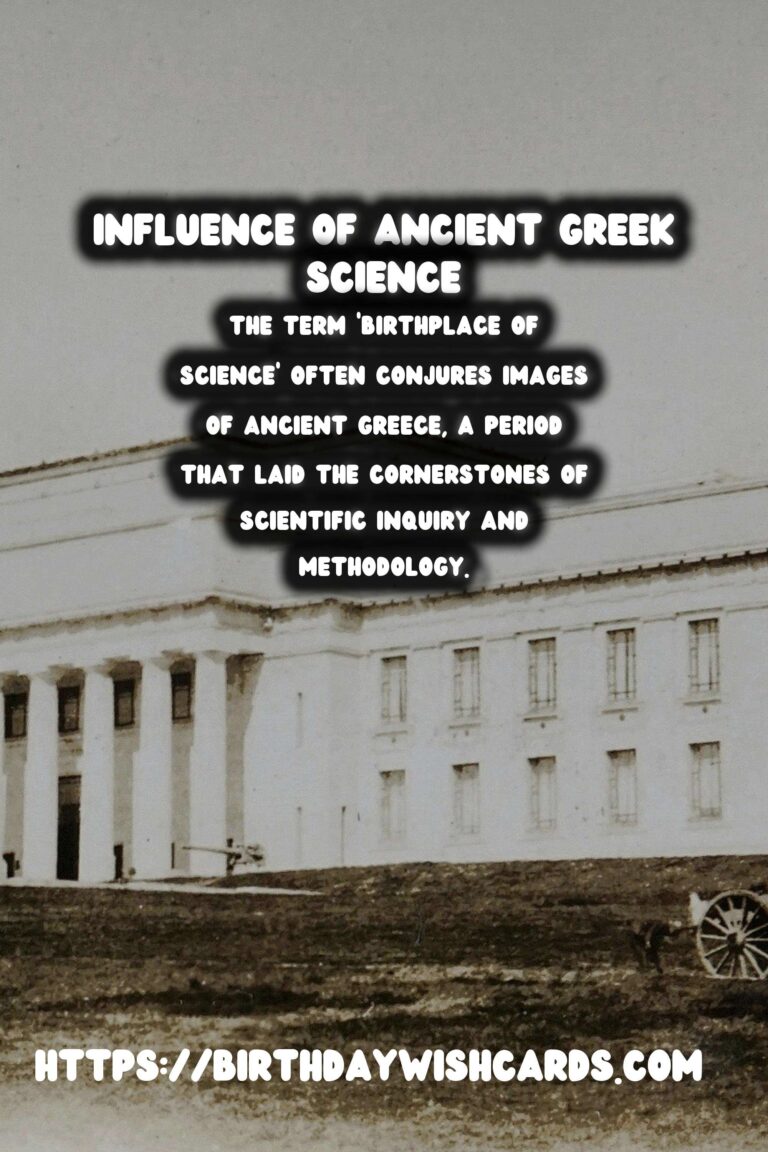
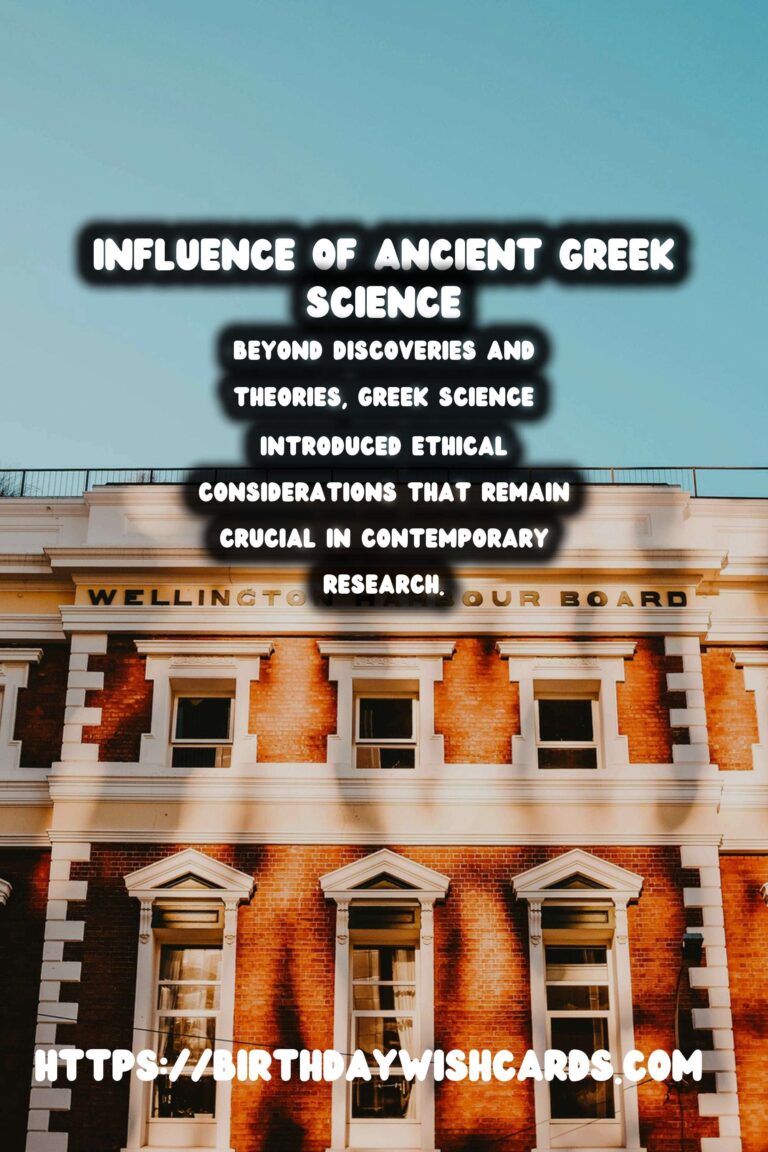
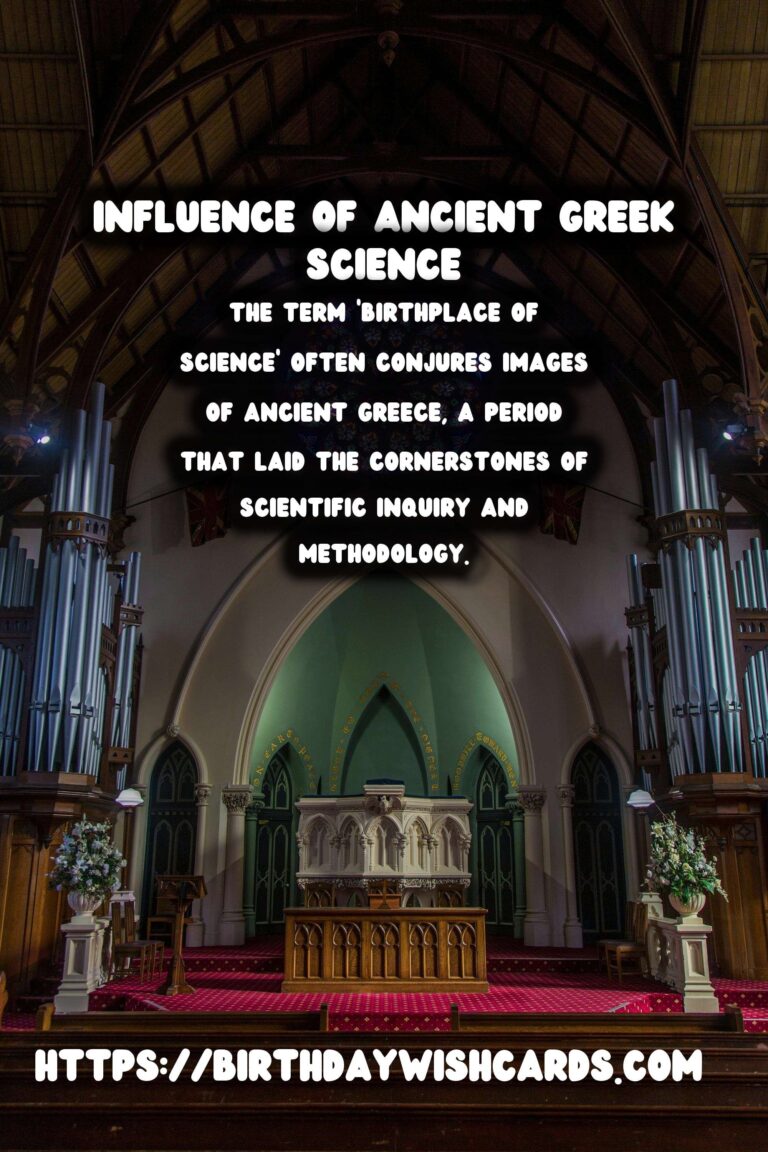
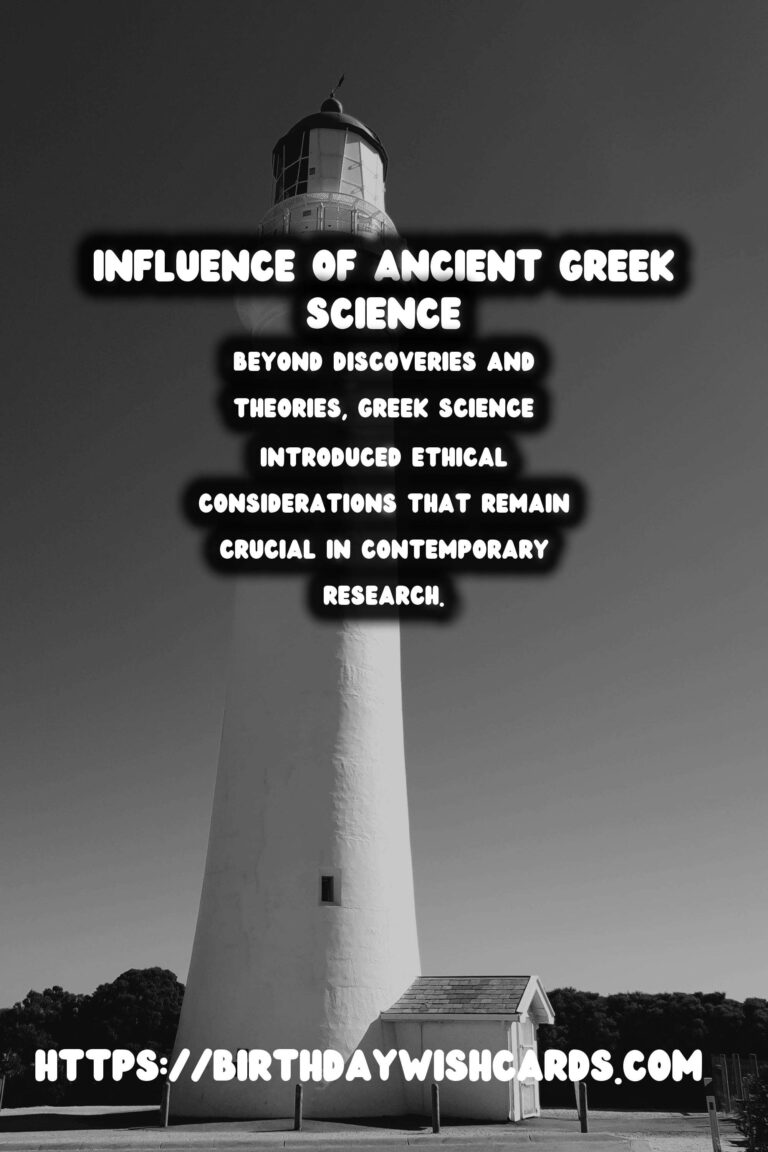
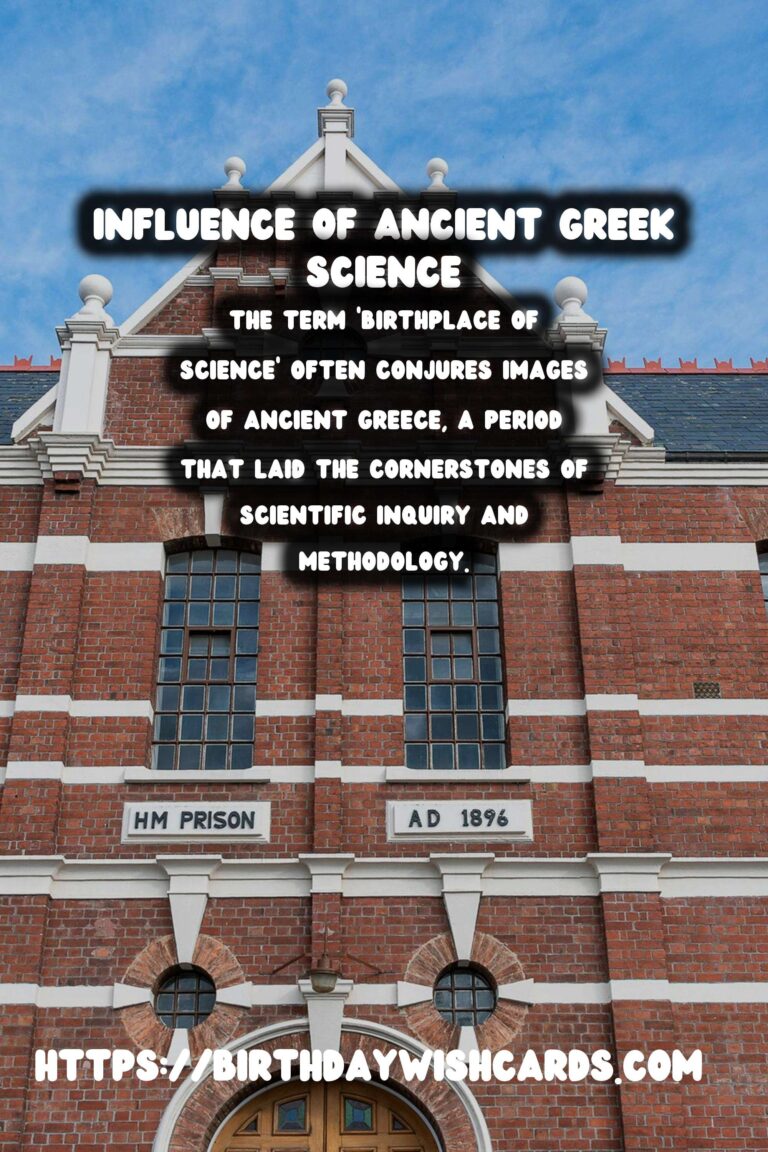
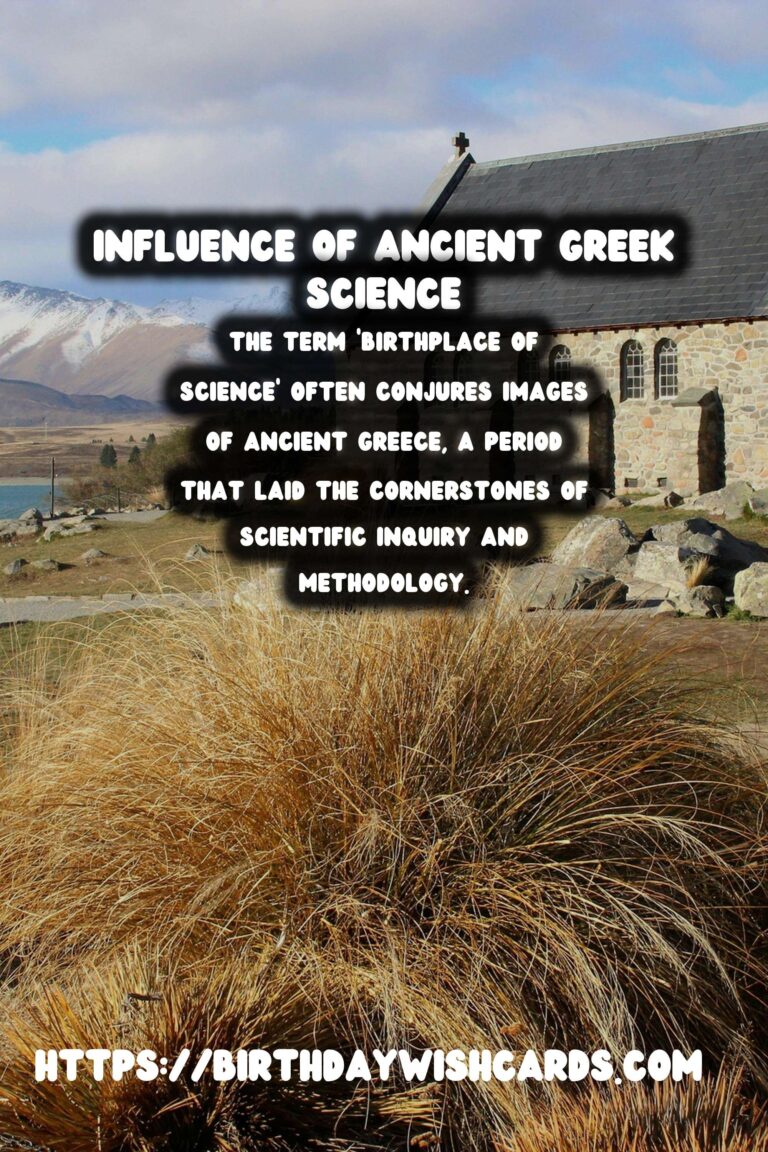
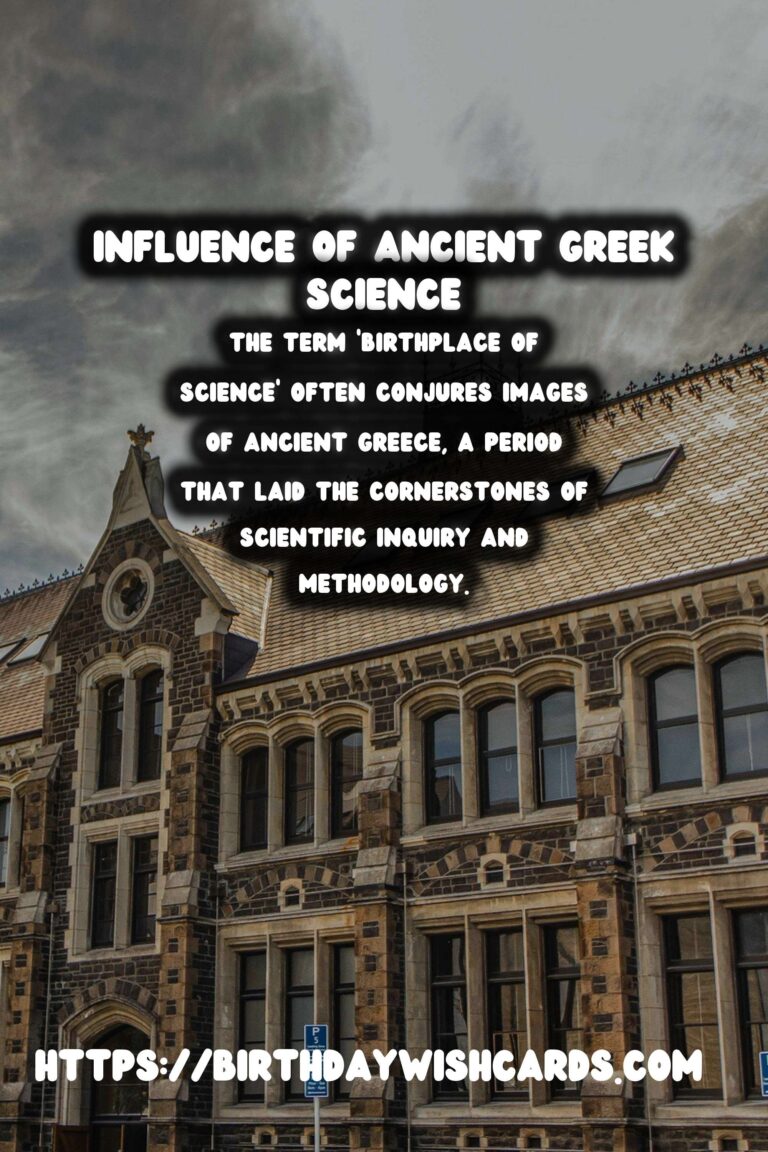

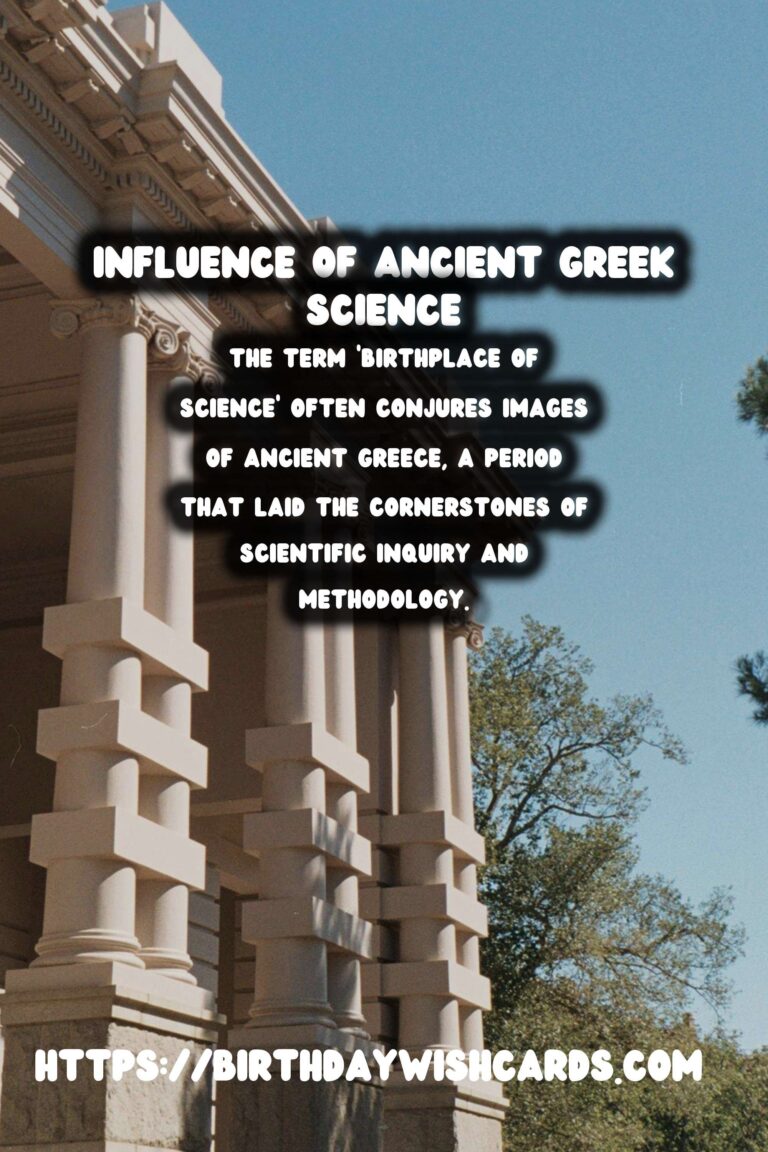
#ScienceHistory #GreekInfluence




